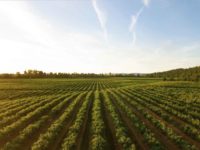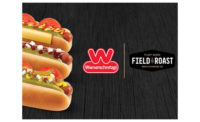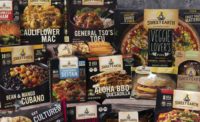Greenleaf Foods has overseen legacy plant-based giants Lightlife and Field Roast since 2018 (see our cover story for more), but both brands were producing their signature products at facilities in Turners Falls, Massachusetts, and Seattle, respectively, for more than a decade prior. Each processing plant has been especially busy the past year due to increased demand for retail foods during the pandemic, and continued plant-based category growth overall.
FAST FACTS
COMPANY: Greenleaf Foods
PLANT LOCATION: Turners Falls, Massachusetts (Lightlife); Seattle (Field Roast)
TOTAL SQUARE FEET: 57,000 (Lightlife); 60,000 (Field Roast)
PIPELINE PLANTS: Shelbyville, Indiana (230,000 Square Feet, Under Construction)
TOTAL PLANT EMPLOYEES: Approximately 460
CERTIFICATIONS: GFSI at Turners Falls; GFSI at Seattle in 2021
According to Greenleaf’s parent company, Maple Leaf Foods, combined sales of Lightlife and Field Roast increased 25% through Q3 of 2020 (the latest metrics available to us before going to press) with sales approximately $124 million (USD) compared to $99 million in 2019.
Even though Lightlife and Field Roast are longtime labels familiar to consumers, Greenleaf continues to innovate new products and reformulate meatless staples like burgers and hot dogs to differentiate itself from the competition. The processing plants in Massachusetts and Seattle are where R&D for Greenleaf comes to life, and overseeing that development is Jitendra Sagili, the company’s chief R&D and food technology officer.
“We’re on a mission of continuous innovation and improvement, and we’re relentless in terms of innovating new products, design and ingredients that would help the taste or reduce the cost of our supply chain,” he says. “We own all the production processes and facilities, so our speed to market is a big advantage—we can move much faster than some of our competitors. Depending on the complexity of a product, we can deliver it anywhere from a few months to a year. Lightlife’s newly renovated burgers, sausages and ground, for example, were done in record time.”
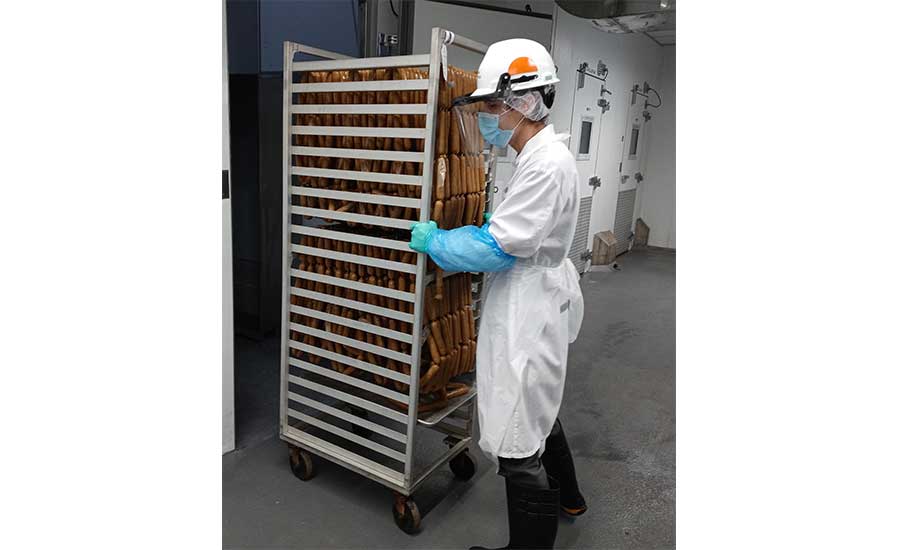

It was a busy year for Greenleaf Foods, as demand for plant-based products like Field Roast Frankfurters (L) and Lightlife Smart Dogs (R) led to a 25% increase in sales through Q3 of 2020.
Greenleaf’s total square footage for processing is 117,000 square feet—57,000 in Massachusetts and 60,000 in Seattle. The company is currently constructing a third facility on 57 acres in Shelbyville, Indiana, which will be 230,000 square feet and cost $310 million. Once completed, Lightlife and Field Roast products will be produced in Shelbyville under the same roof for the first time, with an ideal location for distribution in the Midwest. Those at Greenleaf say the plants in Massachusetts and Seattle will continue operating after Shelbyville opens.
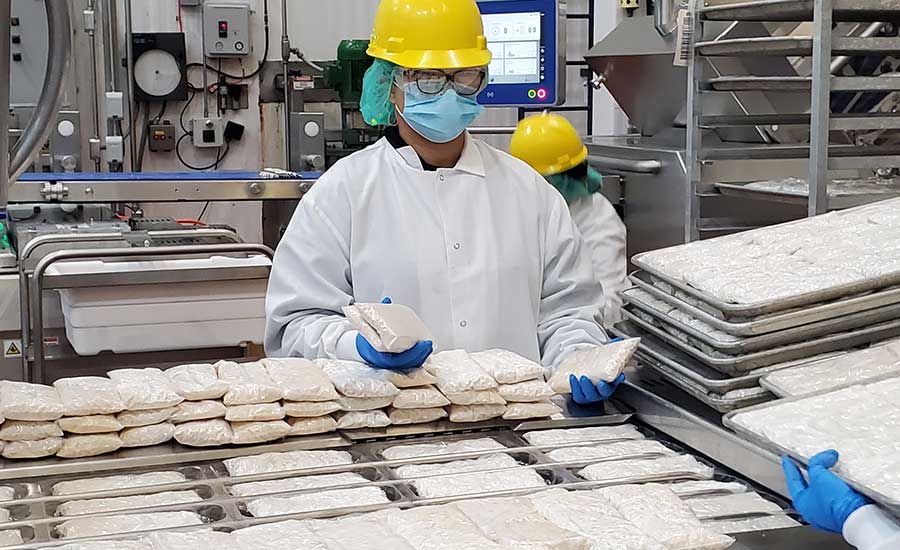
Lightlife’s flagship product is tempeh, which was produced back in 1979 when the company was called Tempeh Works. It’s still made today at Lightlife’s Turners Falls plant.
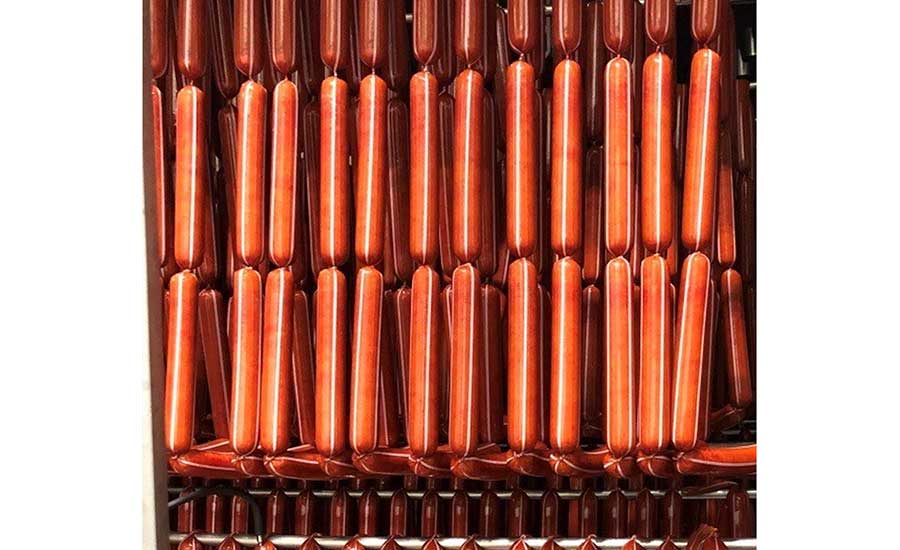
A batch of Field Roast Classic Smoked Frankfurters produced at the company’s Seattle plant.
In the meantime, the Turners Falls and Seattle plants have seen recent capital investments in equipment, automation, food safety and food quality enhancements, and overall structural renovations to further modernize each facility and increase capacity. Some improvements include adding robotics to production areas; transitioning to LED lighting throughout each plant to cut energy costs; installing a standardized enterprise resource planning (ERP) system, and tools for more accurate temperature monitoring.

“We own all the production processes and facilities, so our speed to market is a big advantage—we can move much faster than some of our competitors,” says Jitendra Sagili, chief R&D and food technology officer at Greenleaf Foods.
As for certifications, the Lightlife/Turners Falls plant is GFSI certified, while the Field Roast/Seattle plant is expected to be certified in 2021. Both facilities are audited internally and externally throughout the year. The combined refrigerated lines of Lightlife and Field Roast include certified organic, vegetarian, vegan, all-natural, Non-GMO Project verified, and kosher products.
Greenleaf Foods is a carbon neutral company, so sustainability is a foundational focus. One eco-friendly element is packaging, with Lightlife’s Fresh Line of plant-based meats using 100% recyclable sleeves and trays. Because Greenleaf has 53 SKUs under the Lightlife and Field Roast brands, there isn’t a single streamlined method for producing products, but one example of a start-to-finish process at the Turners Falls facility is Lightlife’s Plant-Based Burger.
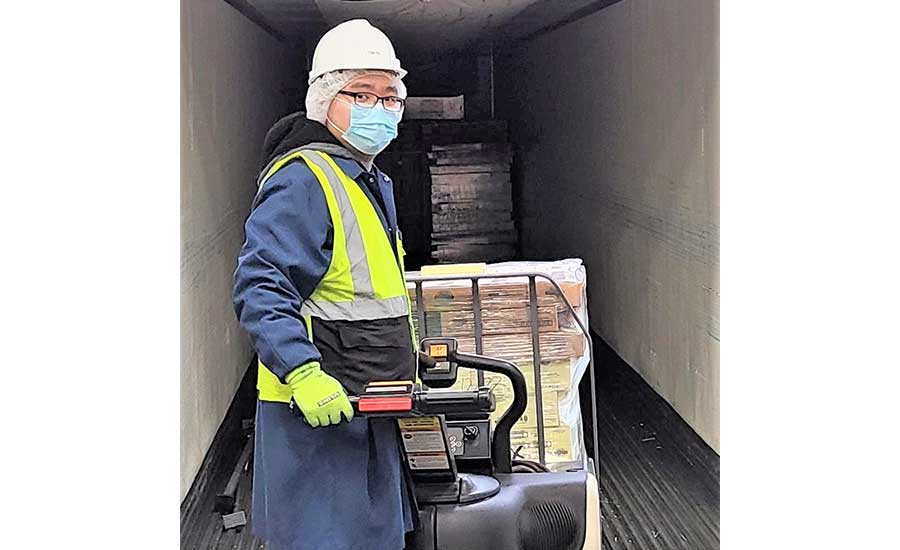
Greenleaf Foods works with a 3PL provider to distribute Field Roast products from its Seattle plant (pictured), and Lightlife products from its Massachusetts facility.
“Our first step is to mix all the plant fiber,” explains Dan Curtin, president, Greenleaf Foods. “So the pea protein, along with water, oil and seasoning go into the bowl chopper. We blend it, hydrating the pea protein and adding our seasoning. Then we press it into round patties, and we’ve come up with some technology that helps us achieve a hand-formed look. Then we chill it, package and seal it, and put it into our distribution channels,” he says, adding that Greenleaf works with a third-party distribution partner to deliver products to retail and foodservice customers.
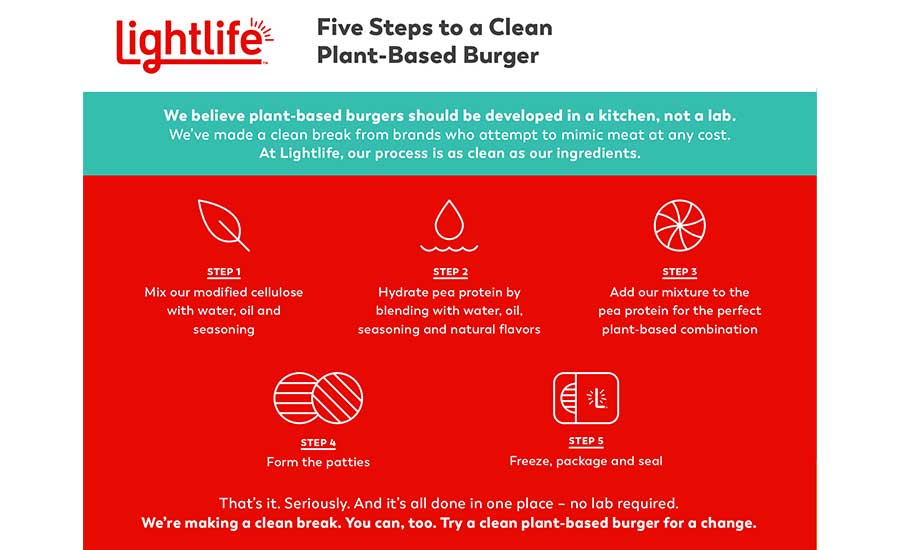
Adam Grogan, Greenleaf’s COO, concludes that the facilities themselves can inspire ideas for new products and strategies to help evolve the plant-based foods category. “If you walk into one of our plants, it has all these fresh vegetables and different seasonings and ingredients, and it smells amazing as we’re making these chef-inspired products. As the flavors come together, you understand how vegan and vegetarian plant-based foods today are adding flavor to your plate, instead of the way vegetables have traditionally been perceived, which is you needing to add the flavor afterward.”
Greenleaf Gives Back
Like many cold foods companies in 2020, Greenleaf Foods was involved in many community outreach initiatives as a result of the pandemic. These include Lightlife donating $250,000 to food banks in cities where they operate—including Turners Falls, Massachusetts, where Lightlife’s processing plant is located—and other contributions to charities supporting Feed the Polls and The Burger Showdown. Greenleaf also hosted a virtual cooking program with Chefs Feed called “Keep the Future Flavorful”, which resulted in $250,000 given to independent restaurateurs impacted by COVID-19 shutdowns.


